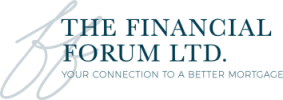If you’ve been glued to the news, you already know how Canada’s inflation rate has hit 7.7%, its highest since 1983. According to Statistics Canada, the consumer inflation rate reached 8.1% in June, primarily due to higher gasoline prices. Meanwhile, grocery bills are up by 9.7%, and the cost of edible fats and oils has increased by a whopping 30%.
Unfortunately, skyrocketing grocery bills and gas prices aren’t the only consequences of this fast-rising inflation. So, if you’ve been nursing hopes of becoming a property owner anytime soon, there’s terrible news- inflation will also affect your mortgage rates. Luckily, there are practical steps you can take to navigate these difficult financial times.
If you’re interested in minimizing the impact of inflation on your mortgage rates, read on for the best tips.
Mortgages and Inflation: How Do They Affect Each Other?
Before delving fully into how to solve the inflation/mortgage rate problem, it’s essential to understand their relationship. First, note that not all inflation is a bad thing. Slow inflation rates can positively impact the country’s economic growth. However, “bad inflation” happens when the inflation rate rises so fast that it’s close to a recession.
The Bank of Canada (BoC) tries to avoid such a situation by targeting a maximum inflation rate of 2% yearly. So, BoC sets an overnight rate target such that when it goes up, banks increase interest rates to cover costs. As the interest rates go up, people borrow less and save more, thereby slowing inflation rates. Note that an overnight rate is the interest rate banks borrow from each other in the overnight market.
While the increased interest rate helps to tackle inflation, it also hikes variable mortgage rates. This is because as BoC increases overnight rates, banks increase their prime rate. The prime rate is directly proportional to variable mortgage rates. However, fixed mortgages don’t go up with prime rates.
What Does Inflation and Rising Rates Mean for My Mortgage?
For people on variable-rate mortgages, the implication is clear—mortgage payments will continue to rise with soaring interest rates. Nonetheless, you may still be paying less than individuals who opted for a fixed-rate mortgage. However, this may no longer be the case with continued interest rate surges. If you’re on a fixed-rate mortgage, your mortgage rates will remain unchanged until renewal.
Should I Do a Variable to Fixed-Rate Mortgage Port?
Since fixed-rate mortgages seem more resistant to inflation than variable-rate mortgages. So, it makes sense to switch from a variable to fixed-rate mortgages to beat rising interest rates, right? The answer is yes and no.
Switching to a fixed-rate mortgage from a variable mortgage only gives you an advantage in terms of stability. There’s no fear that your mortgage payments will go up anytime soon. However, in the long run, fixed-rate mortgages are still more expensive than variable mortgages.
With a fixed-rate mortgage, your payments will still increase to match inflation upon renewal. Again, the gap between both mortgage types is significantly high. It’ll take a 0.75% increase in variable mortgage payments for the next five years to match a fixed-rate mortgage. Although there are cases where fixed-rate mortgages become cheaper as inflation rises, these are rare occurrences.
How Can I Handle Rising Mortgage Rates?
Despite the rising mortgage rates, this isn’t the worst it has been. However, without adequate measures to curb the increased rates, we may be on our way to a recession. As such, it’s only wise to explore new means of cushioning the severe effects of continued high inflation rates by employing these best practices:
● Make Extra Mortgage Payments
With rising rates, making additional payments will reduce your mortgage balance, save money, and pay off your mortgage earlier. Again, making extra mortgage payments now ensures that you can adapt better to increased mortgage rates in the future. You can use a mortgage payment calculator to understand future rates.
● Renew Fixed-Rate Mortgages Early
Besides making extra mortgage payments, you should also try renewing your fixed-rate mortgages in time. This serves as a shock-absolver against skyrocketing renewal rates should inflation continue.
● Switch To Variable Mortgage
Variable rates are significantly cheaper than fixed-rate mortgages. So, you may decide to switch to variable mortgages at renewal time. You’ll save some costs this way.
● Speak With Your Mortgage Broker
Reach out to your mortgage broker if you’re experiencing difficulties making mortgage payments. They may assist you by working out a more convenient arrangement.
● Wait It Out
Sometimes, there’s nothing you can do to stop the tides of inflation. In such cases, all you can do is nothing, and that’s okay.
Final Thoughts
While nobody wants to live through extreme inflation rates, it’s fast becoming a reality we must learn to live with. However, regardless of your preferred strategies to cushion the harsh effects, always consult your mortgage broker for the best advice.





